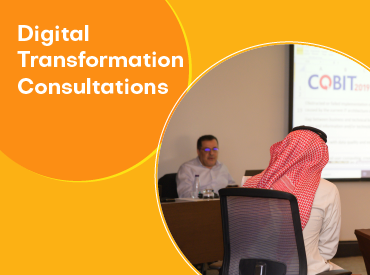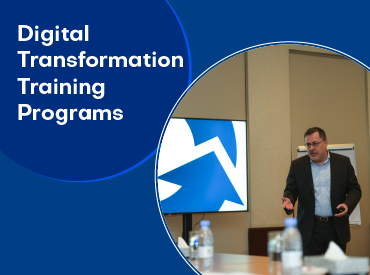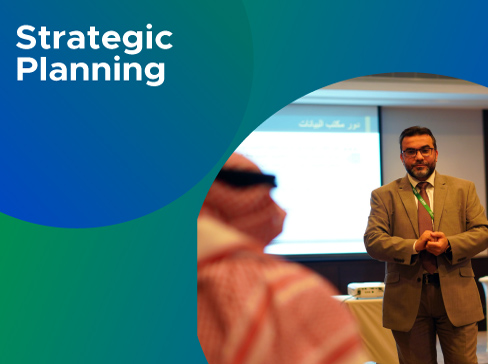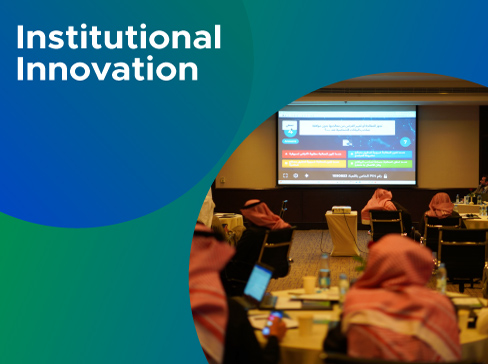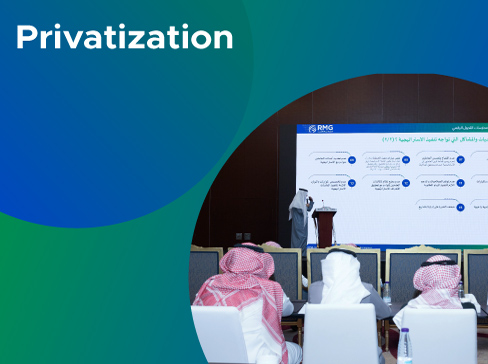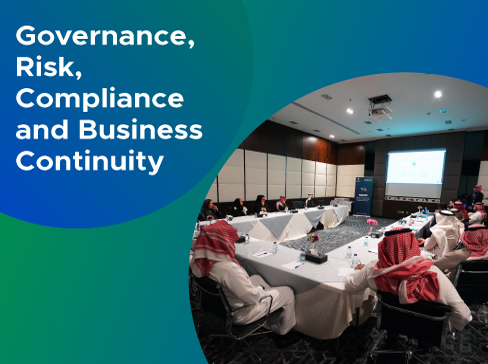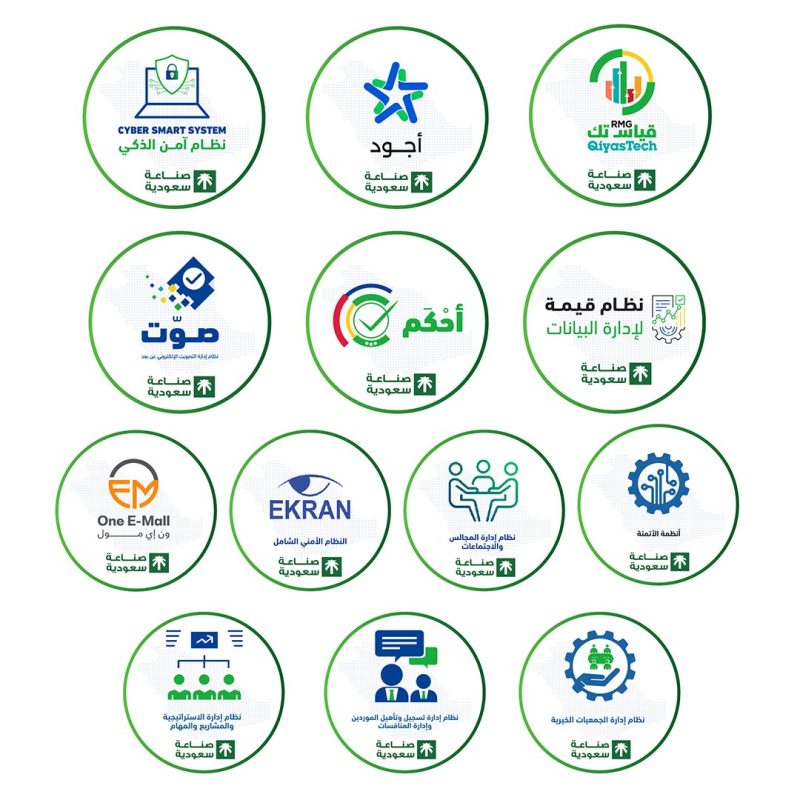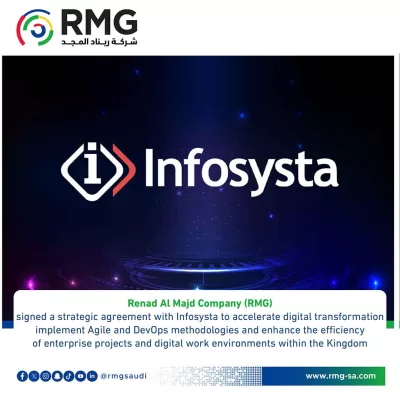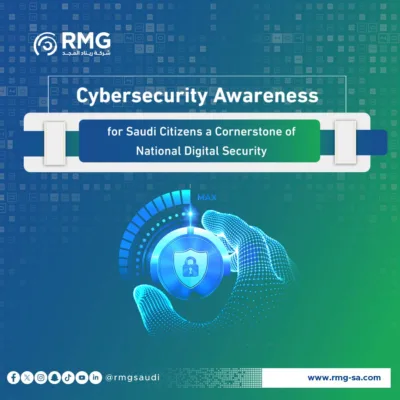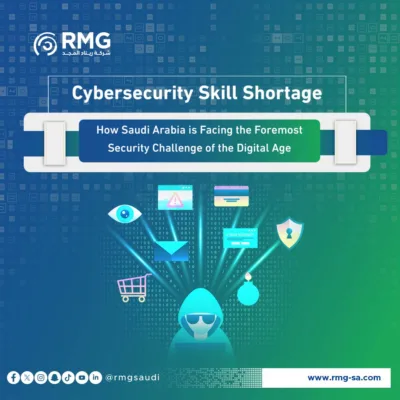Blog Body
Building digital competencies is a vital element in measuring the maturity of digital transformation, as the success of any digital transformation process is linked to the readiness of human resources and their ability to adapt to modern technologies. In this context, the “Building Competencies” standard is one of the basic criteria for measuring digital transformation according to the standards set by the Digital Government Authority in the Kingdom of Saudi Arabia. This standard aims to develop the digital skills of employees and enhance their ability to deal with modern technology, analyze data, and make data-driven decisions, which ensures the achievement of the highest levels of efficiency and productivity in public and private institutions.

The Importance of Building Competencies in Digital Transformation
Building competencies in digital transformation are a key to the success of digital transformation. Digital organizations rely on the capabilities of their employees to adopt modern technologies, analyze data, and use it effectively. The importance of building digital competencies can be summarized in the following points:
- Improving Organizational Performance: Developing employee skills contributes to raising their operational efficiency, which is positively reflected in the productivity of institutions. By using modern digital tools, the execution of tasks becomes faster and more efficient. This improvement in performance can lead to better results, which enhances the organization’s ability to compete in the market.
- Achieving the Strategic Objectives of Digital Transformation: Building competencies in digital transformation helps to achieve the objectives of Saudi Vision 2030, which aims to make the Kingdom a global center in the digital economy. By developing digital skills, institutions can effectively contribute to national digital transformation plans, which enhances their position at the regional and international levels.
- Enhancing Innovation: Digitally empowered employees can develop creative solutions that contribute to improving public and private sector operations and services. Enabling competencies contributes to supporting a collaborative work environment, which enhances the culture of digital innovation. Innovation is not limited to developing new products, but also extends to improving internal processes and providing better services to citizens.
- Achieving Compliance with International Standards: Digital skills contribute to achieving compliance with digital governance standards, data protection and information security. In an era where cyber threats are increasing, it becomes necessary for institutions to be able to protect their data and comply with international standards, which enhances the confidence of customers and investors.
Stages of Building Competencies in Digital Transformation
The competency building process relies on a gradual and systematic approach to ensure the achievement of the desired impact. According to the standards of the Digital Government Authority, public and private institutions go through three main stages when applying the competency building standard:
- Preparing a Plan to Build Competencies: In this stage, the current status of digital skill levels within the organization is assessed. The steps include:
- Analyzing the Digital Gap: Identifying the gaps between current skills and the skills required to achieve digital transformation.
- Developing a Skills Development Strategy: Preparing a comprehensive strategy that aligns with digital transformation objectives.
- Identifying Target Groups: Classifying employees based on their job levels and different specializations.
- Designing Training Programs: Creating educational courses and workshops that focus on the actual applications of digital transformation.
- Implementing the Competency Building Plan and Measuring the Impact: This stage includes:
- Implementing Training Programs: Providing specialized training programs that focus on modern digital skills.
- Performance Monitoring: Measuring the extent of improvement in employees’ digital capabilities after implementing the training plan.
- Applying Performance Measurement Standards: Ensuring the achievement of the desired goals by measuring digital performance.
- Continuous Improvement: Making improvements based on performance reports and continuous analysis of the level of progress.
- Cooperation with Various Entities: Cooperation with various entities is an important element in enhancing the competency building process, where work is done to:
- Establishing Partnerships: Cooperating with educational institutions, universities and training centers to provide advanced training programs.
- Knowledge Exchange: Exchanging experiences between public and private institutions.
- Organizing Conferences: Holding workshops to promote the culture of digital transformation and build technical capabilities.

How to Achieve Compliance with the Competency Building Standard
To ensure compliance with the Building competencies in digital transformation, public and private institutions must implement a number of basic procedures, including:
- Preparing a digital competency development plan that aligns with the overall digital transformation strategy.
- Identifying skill gaps and developing training plans to bridge these gaps.
- Implementing advanced training programs in areas such as artificial intelligence, big data, and information security.
- Monitoring and measuring the impact through performance indicators that demonstrate the extent of improvement in digital skills.
- Strengthening partnerships with specialized entities to ensure the provision of high-quality training.
The Role of Renad Al Majd (RMG) in Supporting the Building of Digital Competencies
Renad Al Majd (RMG) plays a prominent role in supporting public and private institutions to achieve the highest levels of digital maturity. The company provides specialized services in Building competencies in digital transformation, and these services include:
- Strategic Goal Setting: We help you define clear and specific annual goals for digital transformation that are in line with your vision and institutional objectives.
- Current Situation Assessment: We conduct a comprehensive assessment of your current situation and identify areas that need improvement to enhance compliance with digital transformation standards.
- Specialized Consultations: We provide you with the necessary support through specialized consultations to effectively implement digital transformation standards, and help you comply with relevant regulations and legislation.
- Specialized Training Programs: We offer specialized training programs to develop the skills of your employees related to measuring digital transformation, which ensures full compliance with standards.
- Diagnosis and Treatment of Gaps: Our team works to diagnose the current situation and identify and address gaps to achieve full compliance with standards.
- Upgrading the Maturity of Digital Services: We provide specialized consultations that help to upgrade the maturity level of digital services in your organization, in line with the perspectives and measurement axes.
- Preparation and Development of Documents and Plans: We help you prepare and develop the documents and plans required for measurement, with reviewing and correcting them when needed.
- Training Programs to Raise Awareness: We offer training programs specifically designed to raise awareness and transfer knowledge about digital transformation and its importance.
- Supporting Digital Integration: We provide the necessary assistance to respond to the requirements of government digital cooperation and integration.

Renad Al Majd: Partners in Success in a Developing Digital World
Building digital competencies is the cornerstone of the success of digital transformation in the Kingdom of Saudi Arabia. Public and private entities seek to develop the skills of their employees to ensure maximum benefit from modern technologies. Through the implementation of a comprehensive strategy for developing digital capabilities, measuring impact, and strengthening cooperation with educational institutions and experts, a successful and sustainable digital transformation can be achieved.
Renad Al Majd (RMG) continues to support institutions in achieving digital excellence, by providing the latest technical solutions, advanced training programs, and specialized consultations. This cooperation contributes to building a strong and developed digital future that is in line with Saudi Vision 2020, which reflects the Kingdom’s commitment to achieving effective and sustainable digital transformation.
Contact Renad Al Majd now for consulting and business development, where we provide you with the support and expertise necessary to achieve outstanding results in measuring digital transformation. Start your journey towards successful digital transformation today!
For more information about Renad Al Majd services, you can contact our specialized team through the following form:
